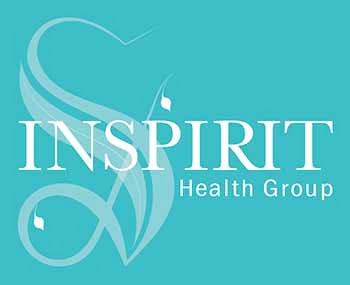Both homeopathy and naturopathy are several centuries old. However, the two medical disciplines are distinctly different from each other in their approaches. Although they are both focused on finding the root cause of the disorder before treating it, the philosophies and treatment are completely different from each other.
Homeopathy
Developed in 1796 by Samuel Hahnemann, homeopathy is a single medical discipline that treats a wide variety of illnesses through the root cause of the very elements that cause them. It uses the source of the disorders as a curative.
New evidence classifies homeopathy as a form of nanomedicine where the regulated dosage is capable of initiating change in the physiological and biochemical structure of the patient. A low dose of the single element (simillimum) that creates the disease is given to the patient to reverse the symptoms. Hence the remedies for homeopathy corresponds with the symptoms.
Homeopathy takes the patient’s symptoms, personal characteristics, physical and psychological state, history and genetics into consideration for treatment.
How Does Homeopathy Work?
In pharmacology-toxicology, the capacity of the low dose to generate an opposite response of what it can cause at higher levels is called hormesis. The best thing about this low dose method is that it is non-toxic. It stems from the adaptive response in humans and animals. For instance, if a person is exposed to low temperatures for a duration of time, his body tolerance will increase and adapt to the higher altitude eventually, even though he may not have been able to withstand it without adverse reactions earlier. This remedy is called hormetin and it is not the same as the cause of the disease. It works with the pre-existing condition and the individual’s unique adaptive process to set the symptoms in motion.
The nanoparticles that are as tiny as viruses are different from the bulk forms of the same element. When downsized, the nanoparticles acquire new electromagnetic, thermal, biochemical, optical and atom-like quantum mechanical properties that they don’t possess in bulk form.
Naturopathy
Naturopathy pulls several medical disciplines and a variety of holistic treatment methods together to provide a cure and further prevention. It has a long history of traditional philosophies
and practices. It incorporates lifestyle changes, herbal remedies, vitamins, supplements and acupuncture for long-term cures. Naturopathy supports the body’s ability to heal itself, treating not just the ailment but also the individual as a whole.
Naturopathy has its origin in Germany and Europe in the 16th and 17th century. Before the 1900s, naturopaths were trained by European doctors through hydrotherapy, herbal medicines and lifestyle changes.
Now North America is acknowledged as the home of modern naturopathy for codifying the principles and contributing some of the established theories and practices that are recognized worldwide. 50% of Canadian provinces and 38% of all states in the USA have regulated practices.
How Does Naturopathy Work?
The principles of naturopathy have been widely acknowledged and recognized by institutions worldwide after intensive research. Naturopathic therapies around the world include:
- Clinical Nutrition
- Herbal Remedies
- Homeopathic Medicine
- Acupuncture
- Physical Medicine
- Hydrotherapy
- Prevention and Lifestyle Counselling
- Hygiene Therapy
- Nature Cure
- Ayurvedic Medicine
Which is More Effective – Homeopathy or Naturopathy?
Whether you choose Homeopathy or Naturopathy, make sure you are treated by certified practitioners. Although there are shorter homeopathy courses available, the medical practice requires at least 3 to 4 years of full-time study to attain proficiency. The program includes medical science courses in pathology, anatomy, nutrition and physiology. In Canada, homeopaths are regulated in Ontario but are free to practice in other provinces.
Similarly, the Diploma in Naturopathic Practitioner is a professional training program for recognized credentials in holistic health. The program is approved by the NANP (national Association of Naturopathic Practitioners). Graduates of the Diploma in Holistic Health Practice have a thorough understanding of herbal medicines, aromatherapy, nutritional lifestyle and wellness counselling, legal issues, ethics and keeping records, among other requirements that qualify for certified recognition.
INSPIRIT Health Group – Naturopathic Clinic in Vancouver and Yaletown
At INSPIRIT, our counsellors are committed to healing you with holistic practices tailored to your unique individual needs. We believe that comprehensive medical care is integral for the harmonious functioning of mind, body, and spirit. Get back into balance to live your life to the fullest. We offer naturopathic medicine, acupuncture, massage therapy, allergy testing and treatment, clinical counselling and much more. Contact us for questions or any health concern.


